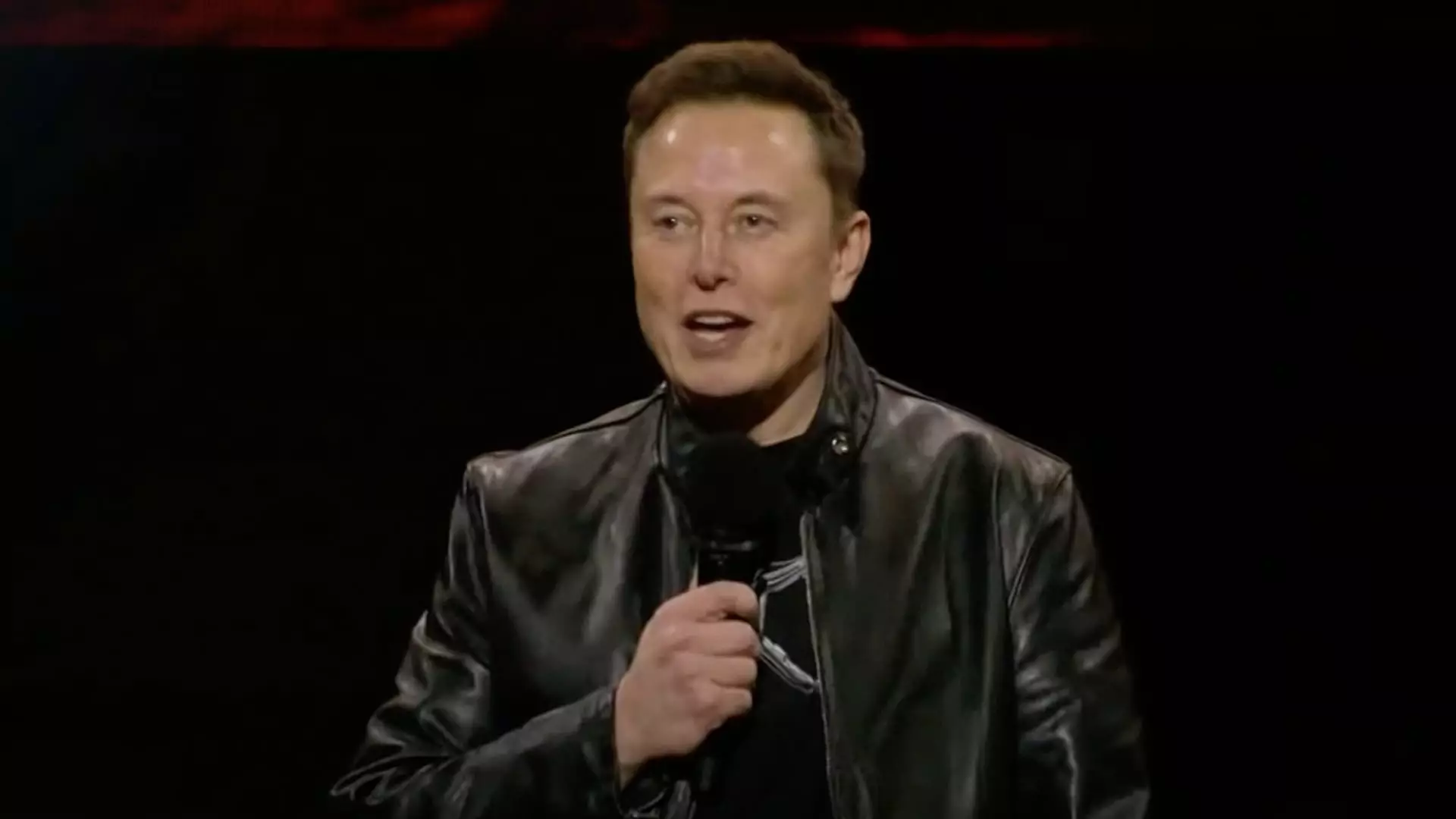The convergence of technology, creativity, and legal boundaries is increasingly becoming the subject of intense scrutiny and debate. A recent lawsuit involving Elon Musk’s Tesla and Warner Brothers Discovery illustrates this convergence in a tangible way. Filed on a Monday in Los Angeles, the suit accuses Musk and his companies of committing copyright infringement by using an image from the acclaimed film “Blade Runner 2049” without appropriate authorization. This case raises vital questions about intellectual property rights in an era where artificial intelligence (AI) plays a significant role in creating and promoting products.
At the core of the lawsuit lies Tesla’s ambitious vision for its “Cybercab,” a dedicated robotaxi that the company hopes to roll out by 2027 at an attractive price point of under $30,000. However, the trouble began when Alcon Entertainment, the production company behind “Blade Runner 2049,” denied Tesla’s request to use what they referred to as an iconic still image from the film for promotional purposes. Instead of adhering to this refusal, the allegations suggest that Tesla resorted to using an AI-generated image that mimicked elements of the original copyrighted work.
Alcon argues that showing this unauthorized image during a promotional event for the Cybercab constituted “massive economic theft.” This is a serious breach that not only undermines Alcon’s intellectual property but also suggests a flagrant disregard for established copyright laws. The implications of such actions are far-reaching, potentially setting a dangerous precedent for how companies might use AI tools to circumvent legal restrictions.
The lawsuit shines a light on a critical aspect of modern creativity: the role of AI in image generation and manipulation. With advancements in technology, it is easier than ever for companies to create content quickly. However, the legal ramifications are murky. Are AI-generated images considered derivative works, or do they stand on their own? In this case, the image in question was described as an “apparently AI-generated fake,” raising further ethical concerns around attributing authorship and ownership of content created by machines. The lines between inspiration and infringement could easily blur, inadvertently placing creators in precarious positions.
Alcon’s lawsuit also touches upon the potential impact of Musk’s controversial public persona on brand partnerships. The suit states that any company considering a partnership with Tesla must take into account Musk’s highly politicized behavior, which sometimes borders on scandalous. This brings a new layer of complexity to the case: not only is there a question of copyright infringement, but also of endorsement and reputation. Alcon, according to the complaint, aims to distance its “Blade Runner” franchise from associations with Musk’s political views, which have earned him both admiration and ire.
This aspect sheds light on a growing trend where brand reputation plays a critical role in corporate collaborations. Brands are now more vigilant than ever about the individuals they associate with, as the risk of reputation damage can outweigh the benefits of technological partnerships. In effect, Alcon’s decision to pursue this lawsuit is not merely a legal maneuver; it’s a proactive step to maintain the integrity of its intellectual property and brand image in a highly competitive and regulatory environment.
Despite Musk’s repeated promises about the development of a robotaxi, Tesla has yet to deliver a vehicle that can operate without a human backup driver. This raises questions about the feasibility of the ambitious timeline set for the Cybercab. With ongoing legal issues and scrutiny surrounding its practices, it begs the question: can Tesla fulfill its promises in a responsible manner while navigating both technological and legal landscapes?
The litigation involving Elon Musk, Tesla, and Alcon Entertainment goes far beyond a simple case of copyright infringement. It underscores significant issues at the intersection of technology, creativity, and law, all while shining a light on the critical importance of maintaining brand integrity in the face of controversy. As we move further into an era dominated by AI and rapid technological advancement, cases like this will likely define the future of creative industries and intellectual property rights.

